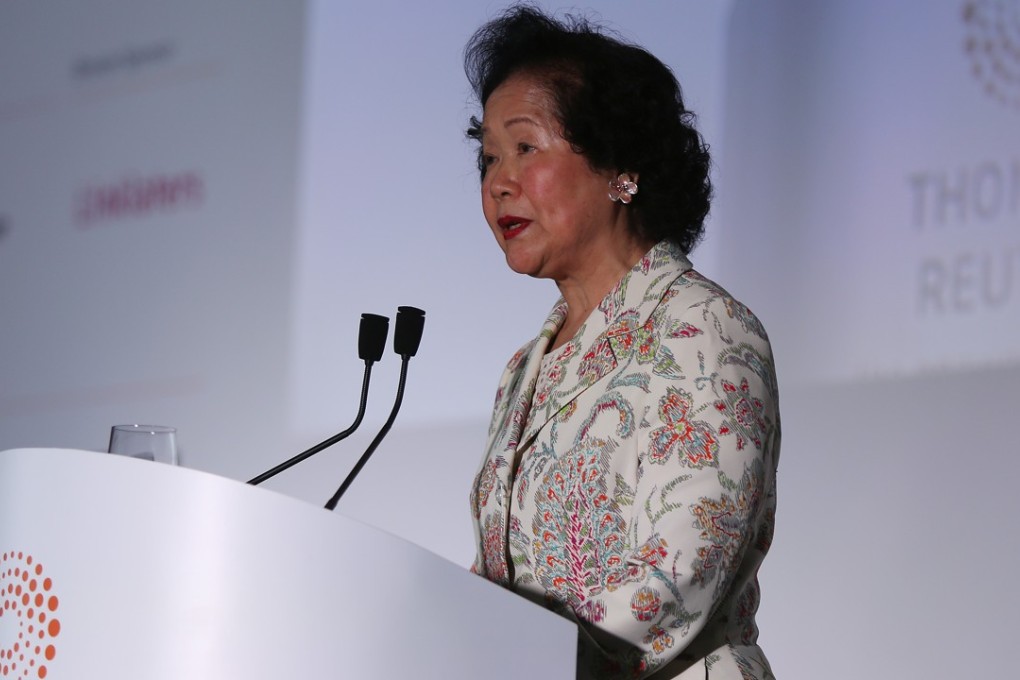Advertisement
Are Anson Chan’s criticisms of Hong Kong’s legal system honest? You be the judge
Grenville Cross says Anson Chan’s criticisms of the SAR’s legal system while in the US were dishonest, took advantage of her audience’s ignorance and her host’s anti-Chinese sentiments, and impugned the reputation of our legal professionals
Reading Time:3 minutes
Why you can trust SCMP

In 1947, then-opposition leader Winston Churchill told Britain’s House of Commons that “when I am abroad I always make it a rule never to criticise or attack the government of my own country”. He added that he had no patience with “Englishmen who use the hospitality of a friendly nation to decry their own”.
Advertisement
The former chief secretary Anson Chan Fang On-sang is no Churchill, but should have taken a leaf from his book.
Instead, while visiting the United States this month to receive the O’Connor Justice Prize, she chose to malign Hong Kong officials, and to suggest that our “free society is perched precariously at the top of a very slippery slope”. Her speech was, however, not just remarkable for what it said, but for what it left unsaid.
Having denounced “worrying evidence” that government officials, in cahoots with Beijing, were suppressing dissent and intimidating protesters, Chan failed to disclose that Hong Kong people have, since 1997, enjoyed a far greater degree of democracy than they ever did in colonial times, with 50 per cent of the Legislative Council now directly elected from geographical constituencies. Nor were they told that the only reason that voters could not directly elect their chief executive in 2017, was that she and her allies had earlier blocked the government’s constitutional reform package.
The chief executive election Hong Kong could have had
Although Chan disparaged former justice secretary, Rimsky Yuen Kwok-keung, for what she called his “vindictive” application to review the sentences imposed on three activists for an offence of unlawful assembly, alleging an ulterior motive to blight their “future political role”, she did not reveal that the reasoned judgments on the case of both the Court of Final Appeal and the Court of Appeal provided absolutely no support for her allegations.
Impact of Nobel Peace Prize nomination on political reform can only be negative

Advertisement